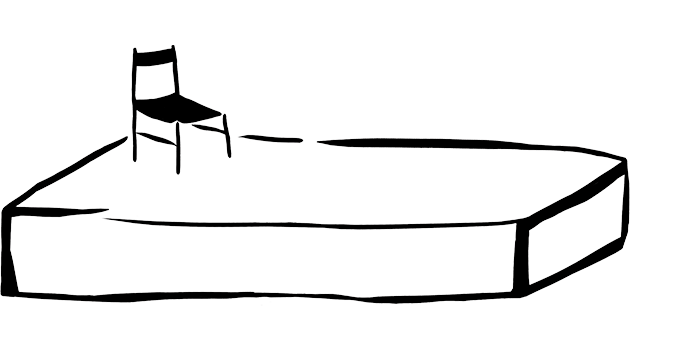React Lab brings together thought leaders from business, social enterprise, government and the arts to explore issues around working life in the 21st century – all within an open and experimental rehearsal space.
Why?
We want to help people take a stab at some of the most difficult questions about being a human being living and working in the 21st Century. We believe in the importance of questions. When we work in the theatre we don’t prejudge the answers, sometimes we don’t need an answer at all. All that is required of actors is to act, and by ‘doing’ often actors discover an answer. The most exhilarating performances are those where new and astonishing discoveries are made live in front of the audience.
How?
The React Lab is a space designed to explore opaque, riskier areas. React has hitherto used the craft of being an actor to great effect, now we’re creating a space where we can tap into the art of making drama.
The lab will be a place where artists and professionals collaborate, use text and movement to unlock difficult-to-articulate sensations, feelings and thoughts, and try out methods for bringing these ethereal ideas to a practicable L&D format.
We’re confident that our business experience will help us keep even the most esoteric exercises always at the same time relevant to real life.
What?
Some of the questions we’d like to experiment with:
- how many levels of instinct are there?
- how do you recognise and trust your instinct?
- how do you reconcile a role at work with your fundamental character?
- how does spirituality effect action at work?
- where does fear mean creativity and when does fear mean panic?
- when does passion make you more effective and when does caring too much stop you from achieving your goals?
- how biased are we?
- do we want everyone to be the same in a deracinated workplace?
- or do we have work to do in acknowledging cultural heritage in the make up of our teams?
- What is the relationship between our sense of value at work and our sense of being a commodity?
These are just a few of the questions that are not answered by skill.
Results?
We don’t know.
But we know the journey towards a result will be valuable. Like all experiments, having too strong an idea of the result can skew the findings. If we’re successful we’ll make amazing accidental discoveries, like the monks who discovered champagne. At the moment it’s a journey, a process, not an event. When the event comes it could be spectacular, and change some of the ‘answers’ in the field of learning and development. Sometimes perceived wisdom can feel unbending and, as Salman Rushdie once wrote, though unbendingness can be strength it “can also be monomania… it can be tyranny, and also it can be brittle, whereas what is flexible can also be humane, and strong enough to last”.

The limits of the possible can only be defined by going beyond them into the impossible.
Arthur C. Clarke